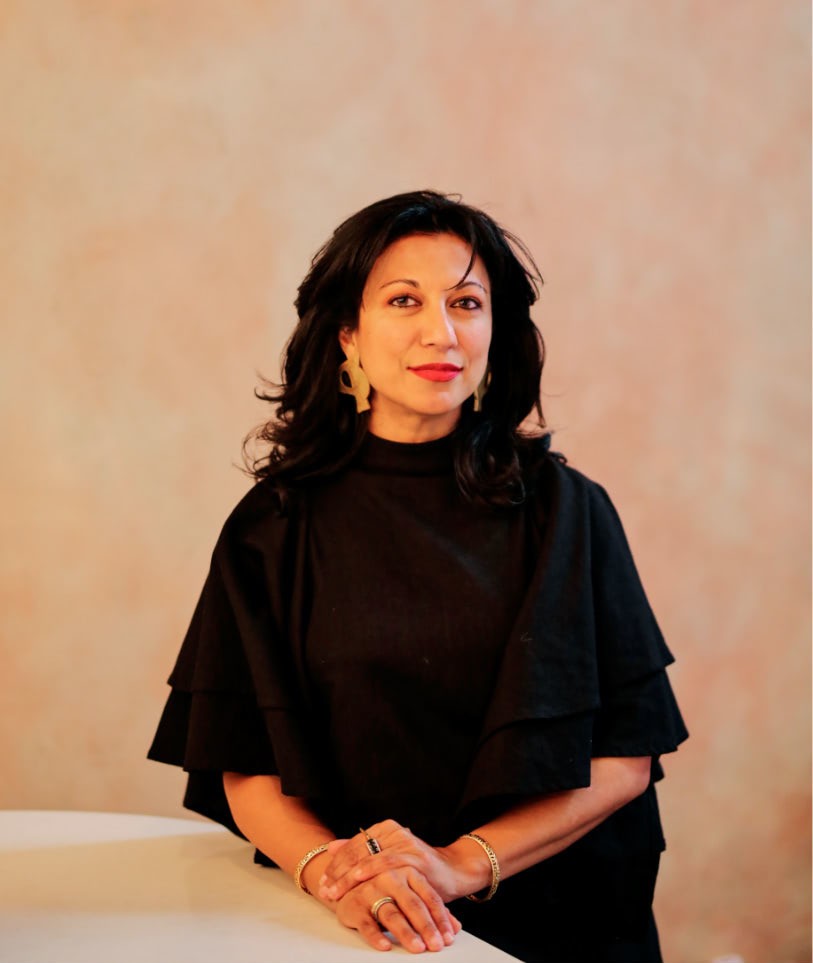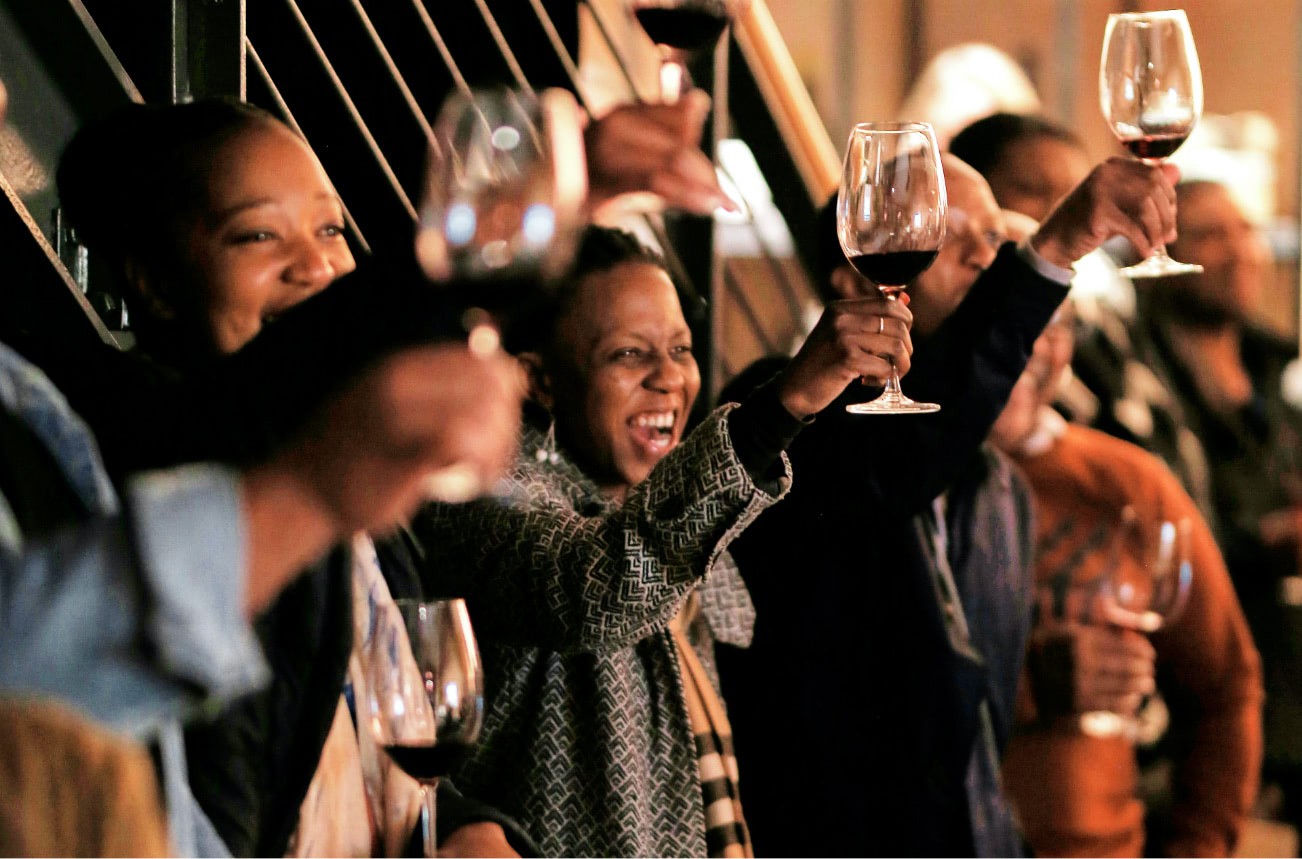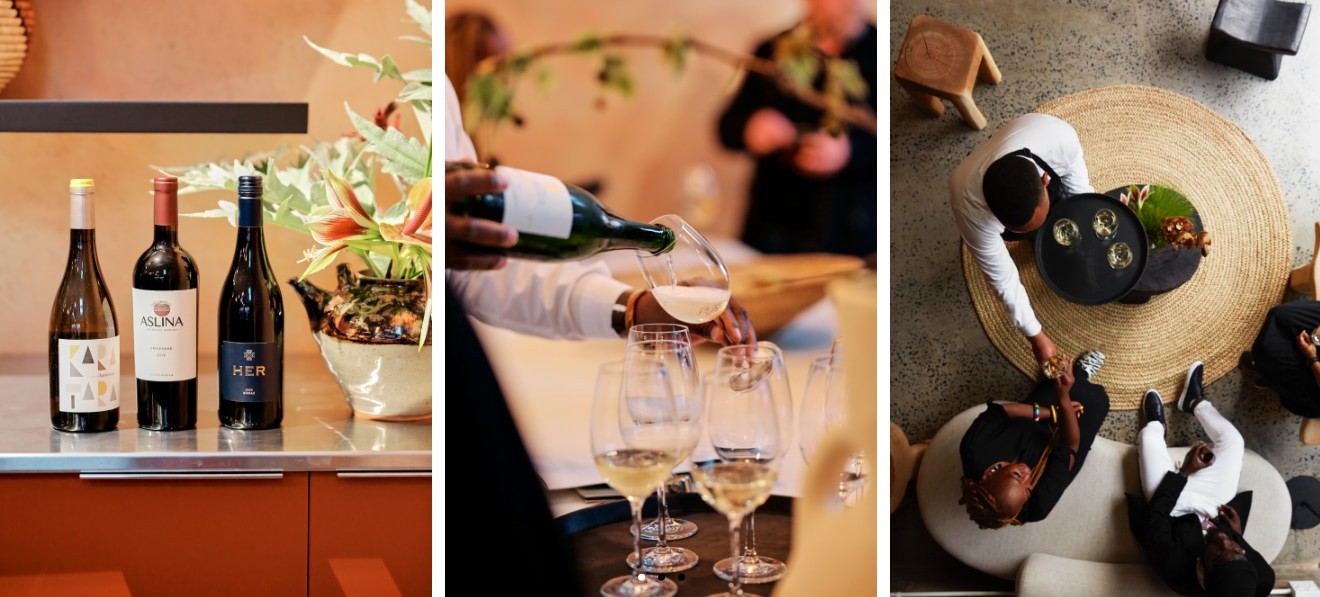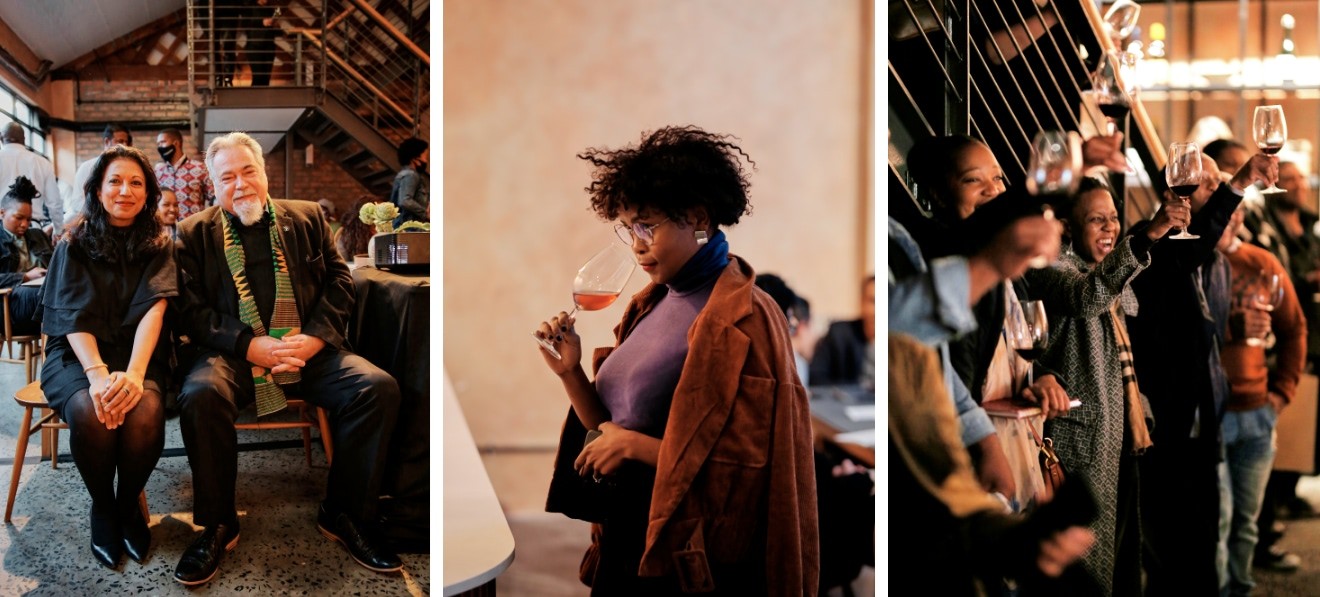Our tool for managing your permission to our use of cookies is temporarily offline. Therefore some functionality is missing.
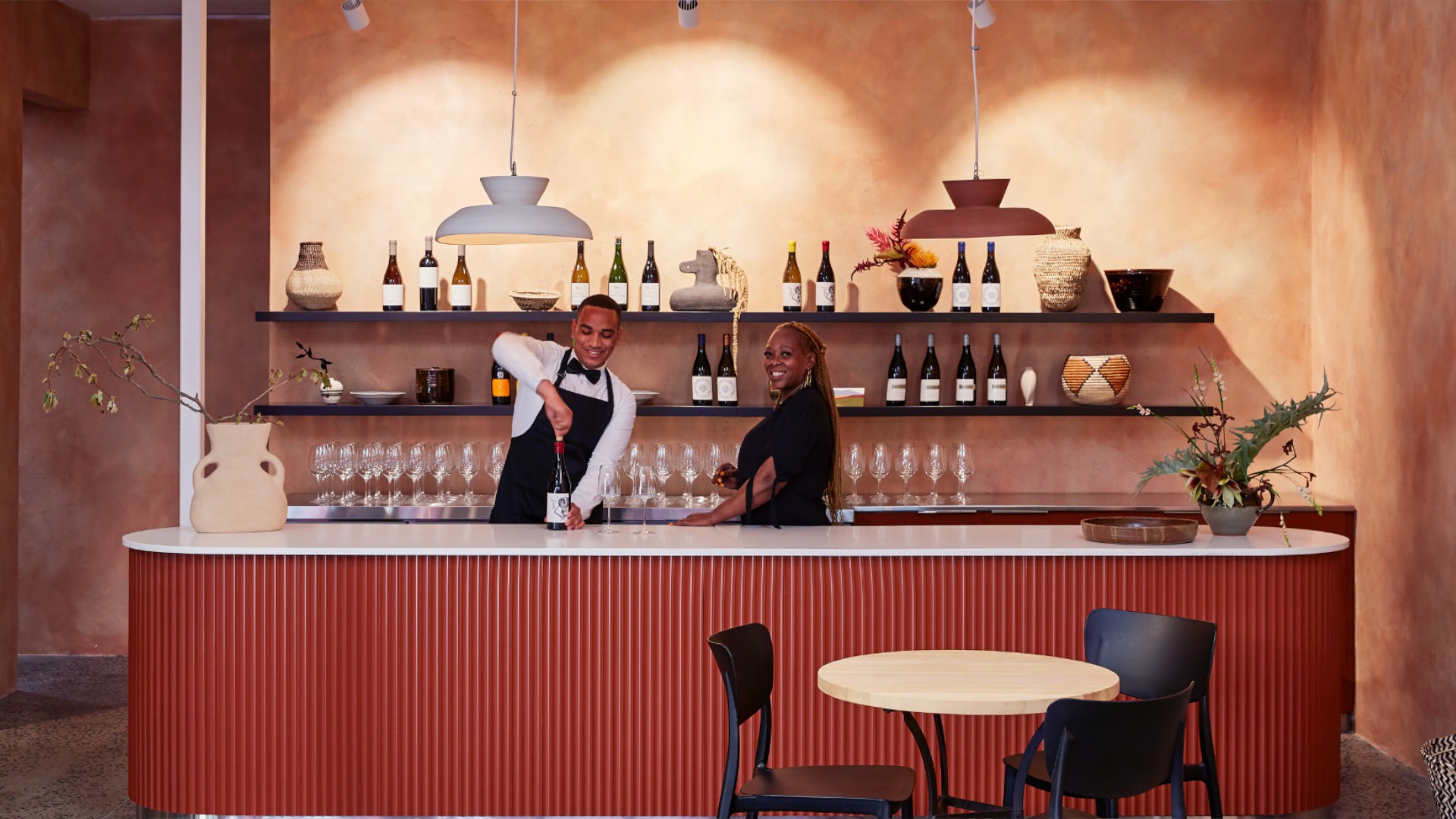
WINE CULTURE.
A new wine marketplace in Salt River breaks new ground for black and brown winemakers in the industry.
When the Cultivate marketplace opened in September last year in Salt River, Cape Town, it signalled a moment of optimism. The past two years have been hard for both the wine and hospitality industries. A stylish new spot in which to enjoy a glass of wine – an industrial space with raw brick and exposed beams, warmed up with an eclectic mix of vintage, repurposed and bespoke furnishings and an earthy colour palette – seemed like a breath of fresh air!
The marketplace itself, however, is just the tip of the iceberg. It’s the face – and home – of Cultivate, a much larger initiative incubated during the pandemic. Its goal is to bring about a sea change in the wine industry, especially as far as culture and representation is concerned.
Cultivate was conceptualised and is led by Zahira Asmal, who is perhaps best known for her work as an urbanist through her agency The City, which focuses on architecture, culture and city making. In a nutshell, she works with various players, from architects and academics to governments and media, to make integrated and inclusive cities.
The aim of Cultivate is to democratise the wine industry, improve the visibility and agency of black and brown winemakers in South Africa, and boost their proportional ownership of wine-related businesses.
Zahira began the process of building Cultivate by establishing a core collective of winemakers and producers, consultants and sommeliers, which she called the Cultivate Collective, to be the beneficiaries of the initiative.
Then she set about creating a marketplace (somewhat counterintuitively in Salt River, a decision informed by her insights into urban design, but more on that later) as well as a business incubator, a masterclass programme and a cellar.
“For me, it’s about democracy making,” says Zahira. “In South Africa we state that we are a democracy, but we’re not behaving like one.” She adds that there are 529 wineries in the country, but only an estimated 70 black-owned brands and companies, which is “astonishingly low”. Black and brown people, after all, account for 91% of the population.
The world of wine, like any other sector “needs to represent our cultural diversity and our society,” says Zahira. She notes that you can’t help imagining the growth potential of the local market if access were improved for black and brown people, and their skills were nurtured.
Cultivate involves a number of collaborations and activities that will ultimately remove barriers to entry so that more black and brown winemakers, producers, entrepreneurs, consultants and sommeliers can participate in the industry.
To start with, both the physical and digital marketplaces help boost sales of wine made by black producers. All the wines at the marketplace are available nationwide and are also distributed to hotels, bars and restaurants. You can currently find 35 wines made by black and brown wine makers at Cultivate. “This number will increase in 2022,” says Zahira.
THE WORLD OF WINE, LIKE ANY OTHER SECTOR, NEEDS TO REPRESENT OUR CULTURAL DIVERSITY AND OUR SOCIETY
Members will have the opportunity to grow their individual enterprises, enhance their skills, commission and mentor each other and generally benefit from the cross pollination that comes from shared networks and expertise.
The business incubator aspect of Cultivate focuses on essential business skills such as financial management, legal and contracting, innovation, internationalisation, business communication and wine tourism. The masterclasses, on the other hand, involve inspirational lectures facilitated by industry experts, as well as one-on-one teaching sessions.
The Salt River marketplace was also conceptualised as an events space which, much to Zahira’s delight, is being embraced by the creative community in the neighbourhood and in Cape Town. “A lot of our neighbours are artists, and many have become regulars,” she adds. “They come and hang out, and are getting to know the winemakers. There’s a wonderful synergy and symbiotic relationship going on there now.”
Locating the marketplace in an urban area also presented an opportunity to rescript some of the history of winemaking in a location relatively free of the historical burdens of the winelands themselves. There were more pragmatic advantages, too, such as access to basic services and complementary sectors. The black and brown winemakers who are part of the collective are scattered throughout the winelands anyway, so a central location in the city was ideal.
Given her background and her work at The City, Zahira has a keen understanding not just of how urban spaces work, but design in general. From Cultivate’s logo to the interior of the marketplace, it’s a feast for the eyes. But this is style with substance.
All the beautiful earthy tones refer to Cultivate as “grounded in South Africa’s democracy”. Its logo is an abstracted landscape, underlining the way in which the brand re-envisions the wine industry’s relationship with the land. The urban aesthetics of the exposed brick and steel do this in a different way, consciously departing from the more conventional and traditional architectural styles associated with the winelands.
The furnishing – a combination of old repurposed pieces (some 70 years old), with new and bespoke pieces – all emphasises handcrafted design and embodies a narrative of craftsmanship and “making” analogous with “wine making, culture making and democracy making”.
The repurposed pieces gesture towards Cultivate’s approach to “rescripting South Africa’s wine story from [one of] exclusion and marginalisation to one of inclusion and representation,” as Zahira puts it. Their overt reference to the passage of time embodies history and the potential for change. The centrepiece – a long table – is particularly symbolic. “The symbolism is that we don’t want to wait to be invited to any table,” explains Zahira. “We made a table, and we want others to join us at our table and cultivate relationships and collaborations. Through dialogue, we will be clear about where we are as a culture and a society, and invite people in.”
Zahira is quick to point out that many established wine estates have embraced Cultivate’s initiatives. Solms-Delta has been foundational in the whole initiative, while other estates such as Spier and Boschendal have contributed enthusiastically to the masterclass programme. “Hotels and restaurants in Cape Town and Johannesburg have contacted us not only to put their wine lists together, but also to curate their [events] programmes, which is fantastic!” she says.
While launching a wine industry initiative (and a marketplace with a wine bar) in the midst of a pandemic may have seemed counterintuitive, it appears that the industry is actually ripe and ready. Stopping for a glass of wine in a stylish spot in the city now matters more than ever.
THE INTERIOR DESIGN EMBODIES A NARRATIVE OF CRAFTSMANSHIP AND MAKING ANALOGOUS WITH WINE MAKING, CULTURE MAKING AND DEMOCRACY MAKING.
